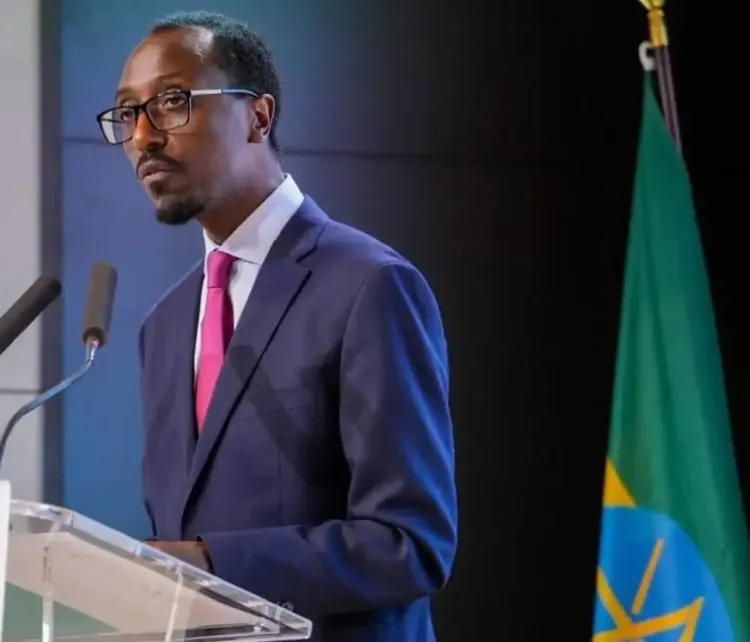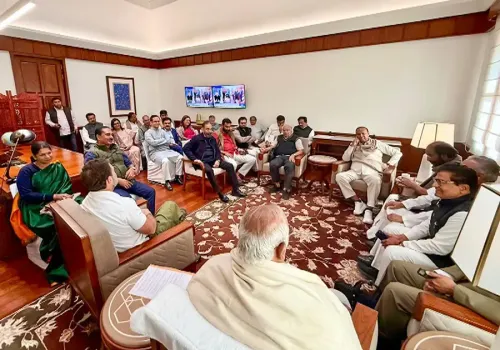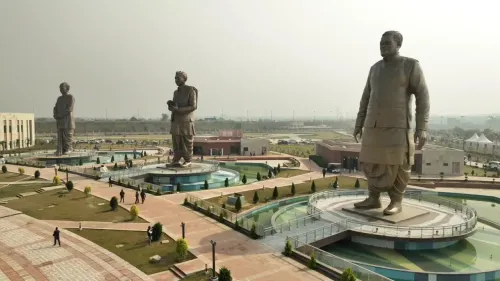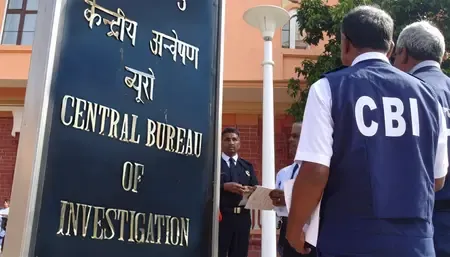What Insights Did the Ethiopian Team Gain from India’s National Rural Livelihoods Mission?

Synopsis
Key Takeaways
- Ethiopian delegation studied India's innovative poverty alleviation strategies.
- NRLM's adaptability impressed the visiting team.
- Role of 'sakhis' was highlighted as crucial for women's empowerment.
- Innovations in livelihood initiatives are key to social change.
- Collaboration between India and Ethiopia may enhance both nations' programs.
New Delhi, Nov 6 (NationPress) Aiming at poverty alleviation and enhancing women’s economic empowerment, a delegation from Ethiopia dedicated a week in India to explore the Deendayal Antyodaya Yojana – National Rural Livelihoods Mission, as reported by an official on Thursday.
The Ethiopian team praised the adaptability and standardization of the NRLM’s framework, noting its ability to adjust program structures to meet varying local needs.
Attendees at the concluding session included H.E. Molalign Asfaw, Ethiopia’s Deputy Ambassador to India; World Bank representatives; and Rajeshwari S. M., Director of DAY-NRLM, under the Ministry of Rural Development (MoRD).
The Ethiopian delegation comprised representatives from nine regions, one city administration, and two pivotal sectors.
Sintayehu Demissie Admasu, Head of the Food Security Coordination Office (FSCO) in Ethiopia’s Ministry of Agriculture, acknowledged the profound engagement, the expertise showcased by Indian officials, and the significance of peer-to-peer knowledge sharing during their visit.
The visitors were particularly struck by the role of ‘sakhis’ — community facilitators who provide crucial last-mile support and resources to women in rural India.
The delegates highlighted various innovations such as bank linkages, diversified livelihood initiatives, and departmental convergence as vital elements contributing to women’s social and economic empowerment.
Inspired by the success of women’s collectives, one delegate remarked, “Women are the foundation of any economy. When we invest in women, we invest in the whole world.”
The Ethiopian team expressed their desire to implement the insights gained from NRLM into their Productive Safety Net Program (PSNP) and extended an invitation to Indian partners for collaborative innovation.
World Bank representatives reaffirmed their dedication to transforming women’s livelihoods in Ethiopia, emphasizing the necessity of government leadership, supportive policies, and private sector involvement.
During the closing session, the Ambassador of Ethiopia to India highlighted the enduring partnership between the two countries and the importance of ongoing policy exchanges to influence institutional growth and impactful initiatives.
The Ambassador called for a comprehensive conceptual framework and ongoing monitoring to guarantee policy inclusion and enhancement.
He also acknowledged India’s global leadership in Digital Public Infrastructure (DPI) and recognized Ethiopia’s ongoing efforts toward holistic sector collaboration.
He urged for bolstering institutional commitments and adjusting India’s successful strategies to fit the Ethiopian context.










